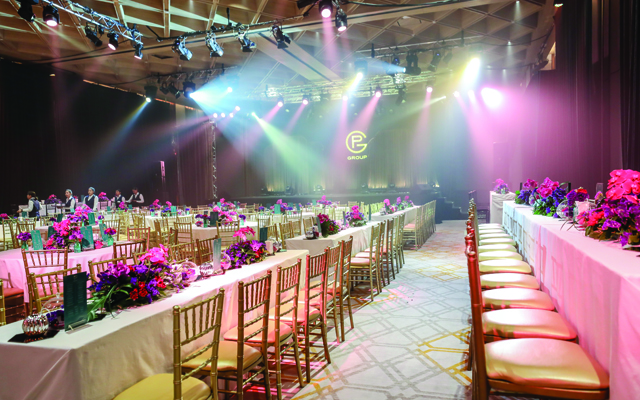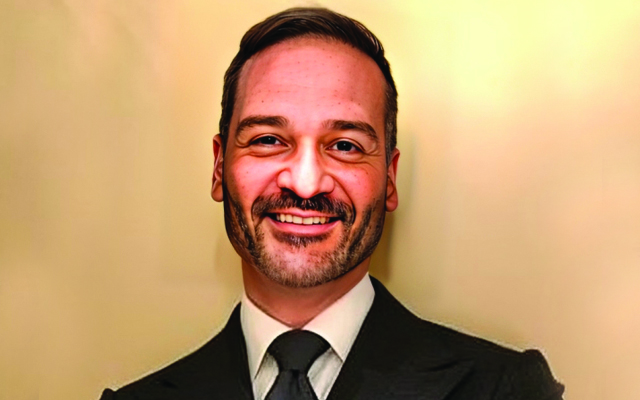The tide is turning for the business events sector, with strong pent-up demand for meetings lifting bookings for hotels.
The days are getting hectic for business hotels in Asia-Pacific, as easing travel restrictions globally pave the way for returning corporate gatherings.
This is a happy problem, representatives of hotel companies told TTGmice. Strong pent-up demand for face-to-face meetings is helping to lift business after two rather quiet years during the pandemic.

Antony Meguerdijian, vice president sales, South-east Asia, Japan & South Korea for Accor, revealed that there is “strong demand” for hotel venues in Bangkok, Malaysia and Singapore, and enquiries are most intense for Phuket in Thailand; Danang and Hanoi in Vietnam; and Seoul, Jeju and Busan in South Korea.
“We had anticipated strong pent-up demand and this has certainly been released as gathering restrictions were eased across the region,” he remarked.
For now, Meguerdijian said bookings are mainly from regional groups, although there are some from the Pacific and Europe. The strong rebound is expected to continue into 2023, with demand driven by insurance, multi-level marketing and fast-moving consumer goods companies.
Hyatt Hotels Corporation, too, is seeing strong returning demand for its properties across South-east Asia this year, and the momentum is expected to sustain through 2023.
Frederick Wong, Hyatt’s vice-president for revenue, sales and distribution in Asia-Pacific, said business recovery is driven by “a really strong desire (among companies) to reconnect as local pandemic restrictions have eased in the region”.
The majority of business events taking place at Hyatt properties in South-east Asia are regional gatherings, but Wong said enquiries from Australia and South Korea are on the rise, with some interest coming in from Hong Kong too.
He added that business events from Europe into South-east Asia are beginning to surface, with most coming from companies in IT, multi-level marketing and pharmaceutical sectors.
At press time in August, Marriott Bonvoy’s portfolio of hotels in Singapore and Malaysia has recovered 25 per cent of 2019’s business, stated Marriott International’s area vice president for Malaysia, Singapore and Maldives, Rivero Delgado.
Sunway City Kuala Lumpur Hotels, whose properties were a favourite among event planners pre-pandemic, has also reported strong bookings since Malaysia reopened borders and permitted in-person gatherings from April 1. Sunway properties are welcoming a mix of government, corporate and association meetings, as well as religious events, with most international gatherings drawing attendees from Asia-Pacific.
Sunway City Kuala Lumpur Hotels, director of commercial, Jeanne Chan said forward bookings, as well as leads in the process of materialisation, are indicating greater prosperity in 2023 compared to 2022.

“We had anticipated strong pent-up demand and this has certainly been released as gathering restrictions were eased across the region.”
Antony Meguerdijian
Vice president sales,
South-east Asia, Japan & South Korea,
Accor
Meet differently
Returning events are showing some changes in the way they are planned and delivered, observed hotel representatives.
Accor’s Meguerdijian said Covid-19 fears still linger, prompting organisers of large events to either split the group across several hotels as a precaution, or stretch programmes across two to three weeks to facilitate staggered and smaller arrivals. Interestingly, while infection concerns remain, organisers are showing a preference for resort destinations – particularly luxury properties – with relaxed Covid-19 restrictions.
Organisers are also gravitating towards outdoor venues, drawn by the ease of social distancing and supply of fresh air, as well as properties that can charm their guests with new and authentic destination experiences. In response to the latter, Accor has launched local discovery, wellness and dining experiences at its South-east Asian hotels and resorts.
For Hyatt’s Wong, business events are stretching out, from one to two nights previously to three to four nights as the current average. At times, some events even run beyond seven nights.
Meanwhile, event technology adoption continues to remain important, even as in-person meetings resume.
Wong explained that hybrid event formats enable attendance flexibility, especially when some level of travel restrictions remain and can hamper participation by overseas guests, such as those from China.
Maintaining its support for clients who require virtual and hybrid event arrangements, Hyatt partnered with Swapcard to introduce an end-to-end virtual and hybrid events platform. The technology gives organisers access to a bespoke programme that unifies on-site and virtual experiences, with Swapcard’s Artificial Intelligence helping to enhance remote attendees’ experience.
Accor too, is all hands on the event technology deck. It collaborated with Microsoft to introduce All Connect, a hybrid meetings concept supported by Microsoft Teams. With this, Accor hotels can provide an enriched hybrid experience for meetings, conferences and events, allowing organisers to combine physical in-hotel meetings with virtual interactions across multiple locations simultaneously.
For hotels keen to snag that new piece of event business, swift action is needed. Marriott’s Delgado said organisers are now expecting immediate responses to requests and enquiries, as short lead times become the norm.
“Planning events in the new normal has taught industry leaders to keep testing, thinking, assessing and learning, so they can be nimble and change what is not working,” he reflected.
Challenges abound
Like travel and tourism in general, business hotels are seeing strong demand restrained by limited air capacity and flight frequencies.
Meguerdijian said the impact on event bookings is significant.
“Many routes have not resumed and flight frequencies have been drastically reduced. This makes it very challenging to move large groups of people around the region,” he told TTGmice.
Technology, too, is a double-edged sword for the events industry. Companies that turned to online meetings during the travel disruption are choosing to retain some of that remote activity to reduce their cost of business travel. Meguerdijian warned that in the long term, this could dent business travel and hurt hotels.
Another hurdle is the manpower crunch that is prevalent across Asia. Wong said many hotels had lost staff through retrenchment during the government-imposed lockdowns and border closures.
While hotels have turned to hiring agencies to plug the labour shortage, Wong said the solution was not perfect, as agencies themselves are short on candidates.
Hyatt has implemented several initiatives to mitigate manpower challenges, including better use of clustered resources, insourcing functions previously supported by contractors while outsourcing other roles where it made sense, and training and recruiting multi-hire roles to work across different hotels and different functions.
“We have also introduced greater flexibility for employees in their hours, and ensured transparent communication with customers and clients about the challenges we face in this area,” said Wong. “Through efficiencies and continual recruitment, we have been able to address these factors and make the most of this travel resurgence.”
Global inflation is a worrying issue too, but Sunway’s Chan is optimistic that Malaysia’s favourable foreign exchange rate, complemented by the country’s diverse cultures, multilingual society and favourable weather year-round, will position the destination as a desirable option.





















